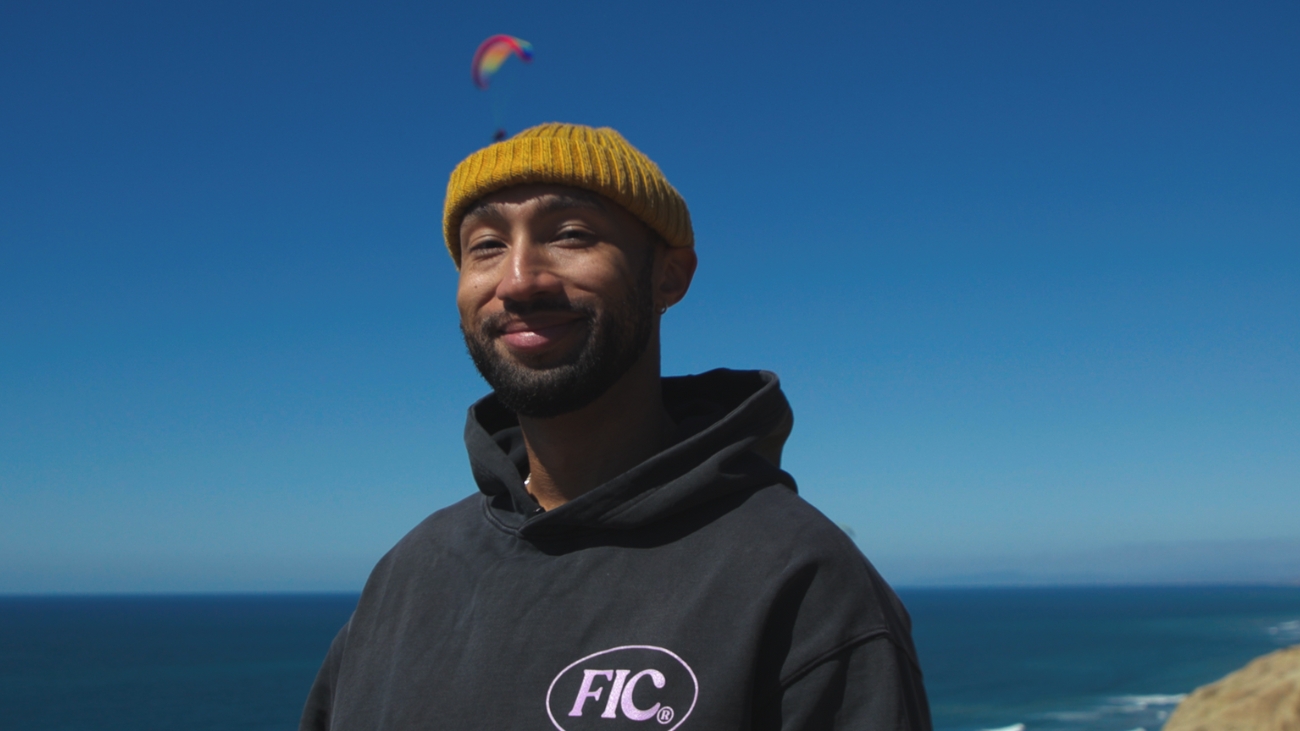
Erwin Hines calls himself an artist first, designer second, and creative director third. From his Future Is Color Studio in Barrio Logan, to the Open Gym restaurant group — both grown in San Diego —, his work springs from a specific intersection: Black and Filipino, Cleveland-raised, identity discovered in layers. He knew his Blackness early, with his parents as guides. The Filipino side came later — an unfolding that redirected everything. He walked away from a conventional career to build something else: music nights, dinner series, wearable art that sparks conversation. For Erwin, “Future Is Color” isn’t a slogan as much as a structure. More spectrum, less center, and building community that doesn’t wait for permission.

.png)
Payal Khandwala (@payalkhandwala) is the founder of her namesake fashion label which marries traditional Indian textiles with an international spirit. Ever since the brand's inception, @whatsappbusiness has helped them communicate more effectively, from connecting with vendors in remote areas of India to supporting international clients through personal consultations.


From Grammy nods to industry accolades, Nikita Chauhan is a force to be reckoned with. Based out of the UK, but managing influential artists across the world, from India and West Africa, back to London, Nikita has navigated the doubt, rejection, and constant need to maintain vision, with unwavering determination and a deep-rooted faith that she inherited from her grandparents. This is a story about success, and learning to cultivate the resilience needed to be a boss. But it’s more than that: it’s a story of legacy, one that finds the softer, often hidden strands that weave through the DNA of the people we admire most. Discover the inspiring story behind this young mogul in As Above, So Below.

.png)
Hieu was one of the world’s most prolific and hunted criminals from 2007 to 2013, when he operated a massive international identity theft scheme from his home in Vietnam. His method was to steal personally identifiable information (names, Social Security numbers, bank account data) and sell it to become rich. 100,000 USD a month rich; 900 x the average Vietnamese monthly salary at the time. Hieu was pursued relentlessly by the Secret Service, until his eventual capture in Guam in 2013. After years in prison, he was granted early release, returning him to his family in Saigon. In that time he transformed, in spirit and ethics, which led to his current role with the Vietnamese government capturing criminals just like his former self. This is his story, and his incredible redemptive arc.


Asian artists have achieved great success in Hollywood, in recent years, but getting that seat at the table has not been easy. Asian stars of the past like Anna May Wong, Sessue Hayakawa, and Miyoshi Umeki paved the way through challenging paths. Their journeys are a tale of resilience, adversity, and strength on the quest for authentic representation.Wong, Hayakawa, and Umeki dealt with constant typecasting into stereotypical roles, despite their undeniable star talent. Their experiences underscore the serious challenges faced by Asian women and men in breaking free from stereotypes. Beyond limited film choices, these stereotypes also meant financial hardships. Anna May Wong received unequal pay in 'Daughter of The Dragon’ in comparison to her white costar, even though she had a larger role. Even Miyoshi Umeki, who won a 1958 Oscar for 'Sayonara,' was confined to submissive Asian female roles, showcasing the challenging choices confronting minority actors. Hayakawa faced major criticism from the Japanese-American communities for perpetuating harmful racial stereotypes as an Asian man in Hollywood.While recent progress in Asian representation deserves celebration, lingering challenges persist. The industry must learn from the struggles of these trailblazers to ensure meaningful representation and break free from the historical erasure of Asians in Hollywood. The legacies of Wong, Hayakawa, and Umeki continue to shape the narrative for future generations of Asian artists.

.png)
Just because you rap doesn’t mean you can battle rap! Dumb has been doing this for a minute. That’s part of the reason he’s so respected in most Asian creative communities. Korean-Argentinian-American rapper Dumbfoundead is a multi-talented artist, rapper, and comedian. He stepped onto the scene as a teen, spitting rhymes in the world of battle rap. Being one of the few Asian guys in the game, it was where he found his voice and learned to be unapologetically Asian. Battle rap can serve as an intimate battleground for exploring the complexities of identity. Dumbfoundead's experiences as an artist and storyteller, particularly as a battle rapper, have served as a vehicle for exploring the Asian American experience, both for him and his audience. While Dumbfoundead's lyrical legacy lives on as a prominent figure in the battle rap scene, he continues to grow as an artist and discover new forms of authentic self-expression.
